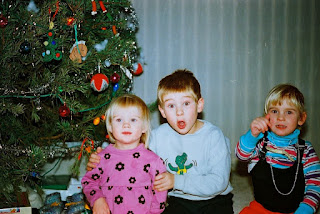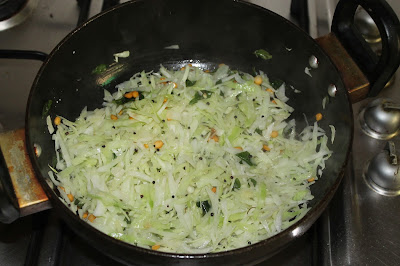Summary: There are some really shitty, discouraging things that happen in our world. I wonder whether there is something that we might to do not only remain afloat but to make a change. I suspect that a lot of this comes from small, intentional acts of love.
Last week in Krakow, Poland I
visited the Auschwitz Memorial/Museum.
 |
| "arbeit macht frei" ["work sets you free"] |
It was a deeply emotional experience for me which was of course, in many ways, expected. (As a friend pointed out to me, it would be sociopathic to be reminded/confronted with such a deep form of mass suffering and not feel emotionally moved.) But it also provoked some unexpected thoughts. One such thought was realising that what scares me the most about global horrors like the WW2 Holocaust is not actually the people like Hitler (…or, in different geo/cultural contexts: Joseph Kony, or Trump, or Mugabe, or countless others…) who spew hatred and encourage discrimination and call people to violence.
 |
| place where night guard sat watch over the camp |
To be sure, Hitler spewed hatred and is often attributed with the violence that
ensued during the reign of Nazi Germany .
But it’s also the people who stood behind him, or around him—the people
who couldn’t be bothered to stand in his way—which allowed the many horrors to
take place. And it’s the societies which formed the structures that allowed him
to stand up strong and high—rather than collectively deciding he ought to be
blocked, or toppled over—which seem equally horrific.
This really scares me.
I don’t know anyone (myself certainly included here) who is consistently kind
and compassionate without any faults or shortcomings: we’re all human and we
make mistakes and have moments where we are mean or unkind or disinterested.
And this is probably okay and should certainly be expected. But this becomes scary when either (a) individuals
become more driven by cruelty and selfishness than by kindness and selflessness; or (b) societies/groups of
individuals choose to sit back and let cruelties happen around them.
 |
| barbed wire walls around the camp |
There are always good people—throughout corners of our world—who stand up and
do whatever is in their power to put an end to the horrors they see unfolding
around them. There are always good people; I am convinced of this. There are a
number of times I have witnessed or experienced complete strangers stand up and
do something thoughtful/loving for someone who was being wronged. These
experiences are life-giving.
The Auschwitz memorial museum wrote out the story of a man who offered his life
for another prisoner who had been sentenced to death. It told of the number of
individuals who risked (and sometimes lost) their lives and their family’s
lives in order to feed/house/protect a neighbour, a friend, or even a stranger.
Many did intentional acts of goodness even if this came at a cost to their own
well being. Jesus was like this. Gandhi...Aung San Suu Kyi…. Mother Theresa…
Nelson Mandela…. Malala…. The nameless
woman who I saw the other week helping a homeless man… People who stand in
active solidarity with the marginalised or oppressed-----there are plenty such
people—of all ages, and from all cultural/religious backgrounds.
 |
one of many photos of individuals who perished at the camps;
I find this photo of this gentleman to be particularly striking. |
And yet in this very same breath it can sometimes seem so easy to be
overwhelmed by the horror and the cruelty of humans—both on a global and local
scale. The state of our world really does break me sometimes. And in these
moments it becomes difficult to focus on (and cultivate, and contribute to) the
people who do loving things.
I need to remind myself—probably every day—that love is ultimately stronger
than cruelty.
And there are PLENTY of opportunities in our current-day affairs to respond
with kindness, goodness, love, etc. (And, perhaps we even ought to take a
rather strong stand against people or systems that we think go against these
values.) Unfortunately, we don’t have to look far to see injustices—some are already
in full swing; some are piling up like a dam about to burst. If you open a
newspaper, turn on the TV channel, or even just walk around your city, you will
see it. Cruelty abounds. It’s cancerous and pervasive and sometimes it seems to
be contagious.

But, as overwhelming and all-consuming that such cruelties may seem, love is ultimately
stronger. It is; it absolutely is. And we have always known that love is
stronger; we have always believed it and held to this with conviction. That is
why some wars could never be won even when battles were finished; love had
simultaneously nullified and transcended them.
 |
Cemetery attached to the Old Synagogue in Krakow;
Jews partake in the mitzvah (command) of commemorating the deceased
by placing a stone at the burial site |
I think that, if we wish to act lovingly and compassionately, we must take a serious look at the circles we inhabit—our neighbourhoods, our workplaces, our countries, our online communities, other spheres of influence, etc.—and see if there are small or large injustices or cruelties that we might take a stand against. And/or, we might see if there are ways that we can bring love, compassion, joy, hope, grace, etc. into the lives of those who need it. (Which is probably all of us.)
 |
| outer wall of the Jewish cemetery attached to the Old Synagogue in Krakow |
I quite like this quote by Gandhi—he refers to it as his ‘talisman’—I’ll end
with it:
" Whenever you are in doubt, or when the self becomes too much with
you, apply the following test. Recall the face of the poorest and the weakest
man [woman] whom you may have seen, and ask yourself, if the step you
contemplate is going to be of any use to him [her]. Will he [she] gain anything
by it? Will it restore him [her] to a control over his [her] own life and
destiny? In other words, will it lead to swaraj [freedom] for the hungry and
spiritually starving millions?
- Source: Mahatma Gandhi [Last Phase, Vol. II (1958), P. 65]
 :)!
:)! 
















































